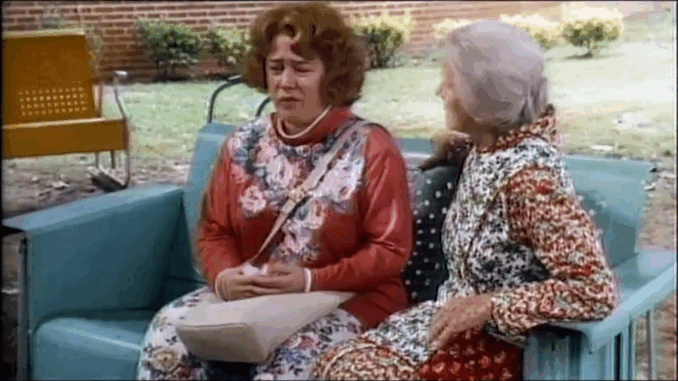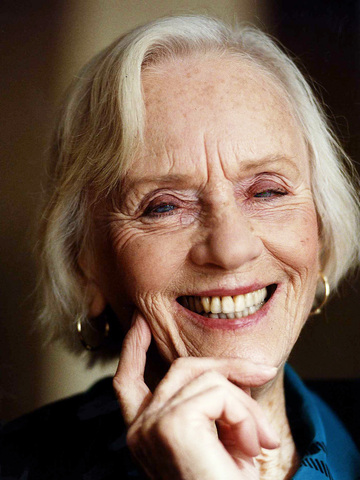
When Fried Green Tomatoes first graced cinema screens in December 1991, audiences may not have expected to encounter a film that would become one of the quiet cornerstones of American feminist cinema. Yet more than three decades later, this soulful adaptation of Fannie Flagg’s novel has not only endured but blossomed—like the wildflowers around Whistle Stop—into a film whose themes of love, identity, and courage are more relevant than ever.
A Story Told Across Time
At its core, Fried Green Tomatoes is a story about stories. It oscillates between the 1920s and the 1980s, weaving a narrative within a narrative: the vibrant tale of Ruth and Idgie as told by the elderly and spirited Ninny Threadgoode to the disillusioned housewife Evelyn Couch.
The structure is not just literary—it’s deeply emotional. It allows us to feel the weight of memory, the pull of nostalgia, and the aching absence that accompanies time gone by. Through these flashbacks, the audience discovers a world of resistance wrapped in kindness, and rebellion laced with compassion.
Idgie and Ruth: Love That Defied the Times
Few relationships in film have been as enduring—or as debated—as that of Idgie Threadgoode and Ruth Jamison. While the film, due to early ’90s studio conservatism, never directly identifies their bond as romantic, the chemistry between Mary Stuart Masterson and Mary-Louise Parker transcends implication.
In the years since its release, the queer subtext has become a focal point of cultural discussion. Some fans see the film as a lost opportunity for open LGBTQ+ representation, while others cherish its subtlety as a product of its time—a careful rebellion.
In either reading, their relationship was revolutionary. In a cinematic era where female friendships were often sidelined or caricatured, Fried Green Tomatoes painted a nuanced portrait of a connection that sustained itself through hardship, judgment, and death.
A Feminist Awakening, One Towanda at a Time

Kathy Bates’s portrayal of Evelyn Couch offered a second narrative of liberation. Her character arc—from a meek, neglected housewife to a self-assured woman reclaiming her agency—resonated deeply with women across generations.
Who could forget the iconic parking lot scene? “Face it, girls. I’m older and I have more insurance,” Evelyn declares, after ramming the car of two young women who took her spot. It’s not just comic relief—it’s a battle cry. Her transformation is both personal and political, reflecting the simmering frustration of women who feel unseen, unheard, and unvalued.
In Evelyn, Fried Green Tomatoes gave us a symbol of the slow burn of empowerment, one made not in grand gestures, but in the small choices that accumulate into freedom.
A Southern Story With Unspoken Truths
The film also wades into murkier waters. Set in Alabama during the Jim Crow era, it does not shy away from the realities of racism. Though criticized for centering white protagonists, Fried Green Tomatoes acknowledges the cruel hierarchies of its time through the lens of Sipsey, Big George, and the quiet resistance of the Black characters who uphold the Threadgoode household.
Sipsey, played with quiet strength by Cicely Tyson, becomes the unlikely agent of justice in one of the film’s most morally complex twists. Her act—both harrowing and heroic—underscores a truth long suppressed in American storytelling: that survival often required quiet courage and swift decisions by those history tried to silence.
A Legacy That Lingers
Fried Green Tomatoes earned two Oscar nominations and grossed over $100 million worldwide. But its most significant legacy lies in the homes where it plays on rainy afternoons, the classrooms where it sparks discussions on feminism and queer history, and the roadside cafes that still serve fried green tomatoes to hungry fans.
Today, Whistle Stop feels less like a fictional town and more like a real place—a safe haven tucked in the American imagination, where love comes in many forms, strength wears an apron, and every life matters.
Why It Matters in 2025
As conversations around gender, race, and representation continue to evolve, revisiting Fried Green Tomatoes is not just nostalgic—it’s necessary. It reminds us that radical kindness, intergenerational connection, and storytelling itself can be tools for transformation.
The world has changed since 1991. And yet, in many ways, it hasn’t. Women still fight for recognition. LGBTQ+ individuals still seek full representation. And the lessons of community, identity, and love—taught in a small town café—still need telling.
Final Thought
In a cinematic landscape often dominated by noise, Fried Green Tomatoes is a whisper that echoes. It is a film of deep roots and quiet power. A reminder that sometimes, the most revolutionary act is simply to care—for others, for ourselves, and for the stories that brought us here.
